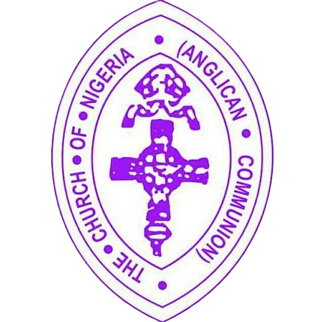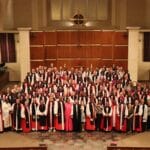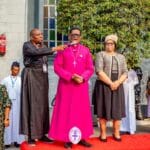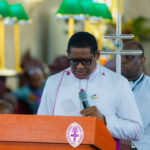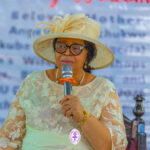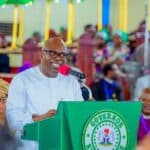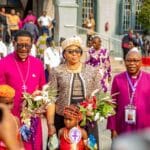- Korede Akintunde
- June 3, 2023
- 0 Comments
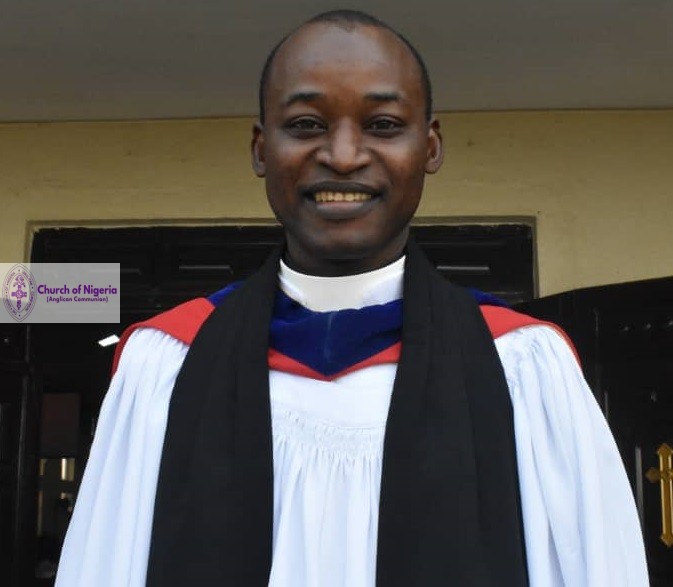
Election or Selection: Theological Appraisal of Elections in Nigeria.
Nigeria in its history of existence as an independent nation has witnessed elections anchored by both the military and civilian governments. It is in its fourth republic and the blame or praises are shared by both the military and civilian governments that have ruled so far. Since it became a republic in 1963 the fourth republic which started on May 29, 1999, and continues till date is so far the longest and uninterrupted by the military, as the military took hold of the nation’s governance between 1966 to 1999 except for the years between 1979-1983. The military cannot be solely blamed for their long stay in the corridors of power in Nigeria since independence because of the misdemeanor of the civilians with power. This made the nation suffer serious political instability that it has not recovered completely from its effect. Some of the reasons for instability include economic mismanagement and embezzlement of public funds, election malpractices, blatant disregard for the constitution and the rule of law, tribalism, nepotism, and regionalism, disagreement on the ratio for sharing of revenue, baseless religious fanaticism and intolerance, corruption, power grabbers and sit-tight emperors, falsified census figures, hard economic conditions and unemployment, foreign interference, selfishness, greed, and destructive tendencies of some leaders, etc. Nigeria as a republic is expected to perform as a government that is by the majority, which is democracy, the absence of monarchy which entails the election of its leaders, and the rule of law which guides and protects the citizens from the abuses of leaders who would want to rule based on their whims and caprices. As far as Nigeria’s constitution, 1999 as amended on the leadership and governance is concerned, election is the only means through which individuals can come to power at the national, state, and local governments leadership. It was an aberration and still is to get to the leadership of these tiers of government through a coup as the military had done previously, or through military fiat, violence, or any other undemocratic means such as selection. To this effect, the topic of this lecture needs to be clarified to remove ambiguity, especially on the use of the word “selection.”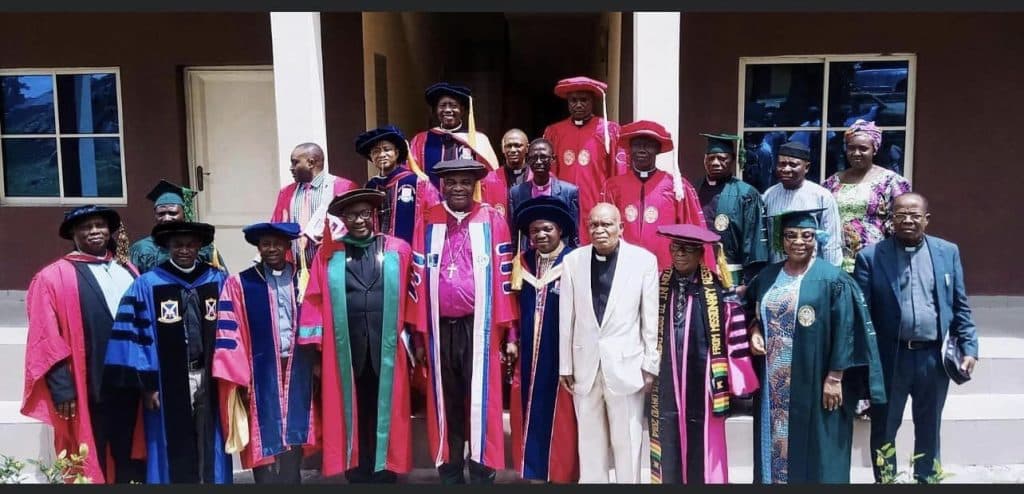 What is selection? The word that stands between election and selection is a conjunction and can be of agreement or contrast. According to the Cambridge Dictionary, “or” is a conjunction that is “used to connect different possibilities;” and “used after a negative verb to mean not one thing and also not another.” There are two ways to look at selection in relation to the topic. If it is taken in the agreement sense of it, then selection is a synonym of election, for instance, whereas the republican constitution of 1963 allowed for the selection of the Prime Minister from among those already elected, the presidential constitution of 1979, as well as the 1999 constitution as amended, permits the election of the president directly by the electorates. In this case, it can be argued that Nigeria legally at different points permitted both selection and election. But if it is seen as a contrast then selection is an antonym of the word election. Although both are tenable, the constitution of Nigeria has no room for selection. To confirm this point, Human Rights Watch sees selection as “the process in which political office is secured by means of corrupt and abusive practices rather than through free and fair elections,” (Human Rights Watch (April 2007, No. 1). If this description by Human Rights Watch is taken to its logical conclusion, then it makes it possible to conclude consequently, that Nigeria has never had an election but selection. This must be so because Nigeria has never had a free and fair election that the opposition has no recourse to challenge either by castigation, lawsuits and at the extreme by violence. For instance, whereas the 2023 election has been decried by many as the worse in terms of malpractices and rigging, the 16thPresident, Bola Ahmed Tinubu said, “since the advent of the Fourth Republic, Nigeria has not held an election of better quality” (The Nigerian Ideal – First Inaugural Address by President Bola Ahmed Tinubu 29 May, 2023). So, as it is, if the topic aims at pushing away selection for election to stay, at this point it will be difficult because, quite frankly, selection seems to be a landlord whereas election is a tenant in Nigeria. This is a lovely lacuna because it invites this lecture to focus on the theological aspect which if accepted and properly performed will send the unwanted landlord called selection packing and enthrone election which is so much desired. Having said this, this paper will briefly review elections in Nigeria and conclude with a theological appraisal.
Election and Stages of Elections in Nigeria
It can be erroneously assumed that election is simply the act of casting a vote for a preferred candidate at the polling booth on the day of the election. But election is much more than casting of votes on election day. Election is more than what happens on the day of election. According to David Tuesday Adamo, An election includes the entire legal and constitutional framework of elections, the actual registration of political parties, party campaigns, financing, the activities of security agents, and the government in power. It includes the authentication and the genuineness of the voters’ register, the independence or lack of it. It also has to do with the liberalism or nonliberalism of the political process in a particular country and the independence of adjudicating electoral bodies (pp. 3-4). Adamo’s perspective about election suggests that election is not merely the exercise of casting of votes but includes all the processes before and after the day of election. As already established above, election is not a day’s affair as such it involves different activities at different levels or stages of the electoral process. A typical election goes through the following stages:
1. Pre-Election Stage: This is the first stage which involves setting the commission in charge of election, providing electoral act and guidelines, registration of voters, candidate of political parties presenting their manifesto, and all persons qualified to vote are registered, etc.
2. Primary Stage: This has to do with the screening of candidates by political parties and the holding of primary elections.
3. Nominations Stage: This is the stage when political parties present their flagbearers who will contest election with others from the other political parties in the general election.
4. Campaign Stage: The different political parties go around canvassing and campaigning for votes for their party and flagbearer.
5. Accreditation Stage: This stage involves what happens on the day of election. Each voter is accredited by the Independent National Electoral Commission (INEC) staff before proceeding to vote. Those who are accredited cannot vote.
6. Ballot Paper Stage: The next thing after the accreditation of voters is the handing over of ballot paper to the voter in readiness for voting.
7. Voting Stage: This is the stage when the voter enters the voting booth to vote for his preferred candidate in the election.
8. Collation Stage: After the voting has ended according to electoral guidelines and timing, all the results are collated and the result of each political party and candidate are counted and documented.
9. Declaration of Result Stage: At this stage, the INEC announces the result of the elections and declares the winner of the election.
10. Certificate of Return: The INEC will present the Certificate of Return to the winner of the election.
11. Inauguration Stage: This is the final stage of election where the elected person is sworn into office to perform his or her leadership and governance in accordance with the stipulation of the Constitution of the Federal Republic of Nigeria. Election is a necessity in an ethically diversified nation such as Nigeria. Gershinen Paul Dajur (2019), in underscoring the necessity of election in a democracy sees election as a process rather than a single act. He said, “election is the process of choosing and selecting people into leadership positions” (P. 65). Sikiru ‘Lanre Nurudeen presents the benefits of elections as well as the place of the winners and losers of elections. That is, both the winners and losers of elections have vital roles to play in the governance of the nation. Elections guarantee political participation and competition. They also provide an opportunity for citizens to make a political decision by voting for the competing candidates fielded by various political parties. This implies that election which is one of the critical anchors of democracy requires the existence of political parties. In Nigeria, political parties offer citizens a choice in governance, and while in opposition they can hold governments accountable All these are central to the wider consolidation of democracy (p. 126).
An Overview of Nigeria, Political Parties and Elections
Nigeria came into being as one entity through the amalgamation of the Northern and Southern Protectorates in 1914 but had its first political party, Nigerian National Democratic Party (NNDP) formed by Sir Herbert Macauley and had an election in 1922. This became possible through the Clifford Constitution of 1922. The next political party became the Lagos Youth Movement (LYM), a political made up of the graduates of King’s College, Lagos in 1934. In 1936 LYM changed to the Nigerian Youth Movement (NYM) and its membership became strengthened with the return of Dr Nnamdi Azikiwe from Ghana. The National Council of Nigeria and Cameroon (NCNC) was later formed in 1944 as a national political party with Sir Herbert Macaulay and Dr Nnamdi Azikiwe as national leader and national secretary respectively. This political party was powerful and was said to have sent a powerful delegation to London in 1946 to express its concerns against Richard’s constitution. Action Group (AG) of Nigeria formed by Chief Obafemi Awolowo became the next political party to be formed after NCNC. The Northern People’s Congress (NPC) which is more like a counterpart of AG was formed in 1951. The three political parties, NCPC, AG, and NPC representing the three regions of the East, West, and North became the national political parties that heralded the independence of Nigeria in 1960.
At independence, NCNC joined NPC in the formation of the coalition government, with Tafawa Balewa of NPC as Prime Minister NPC and Dr Nnamdi Azikiwe of NCNC as the Governor-General, while Chief Obafemi Awolowo of AG was the opposition leader. Although these three were the major political parties, others not so strong existed as well: Northern Element Progressive Union (NEPU) led by Aminu Kano and the United Middle Belt Congress (UMBC) led by Joseph Tarka which served as opposition to the NPC in the North. The Mid-West Democratic Front (MDF) was the opposition for the mid-west region, and the Nigeria National Democratic Party (NNDP) by Chief S.L. Akintola was the opposition for AG. NNDP came about because Akintola was forced out of AG, and he joined Fani Kayode and they distinguished NNDP from the one formed by Hebert Macaulay in 1922. In the first republic coalitions of political parties to competed for seats for instance the NPC joined NNDP to form the Nigeria National Alliance (NNA); while AG joined NCNC to form the United Progressive Grand Alliance (UPGA). The inability of the then Nigeria’s President, Dr Nnamdi Azikwe to form a new government with Tafawa Balewa, the then Prime Minister caused crisis that led to the intervention of the military and that brought the end of the first republic. In the Second Republic Federal Election 1979, the Federal Electoral Commission supervised the 1979 general elections under General Olusegun Obasanjo. The political parties of this republic are the National Advance Party (registered in 1983); the Unity Party of Nigeria (UPN) rooted in the AG and led by Chief Obafemi Awolowo; the National Party of Nigeria (NPN) with Shehu Shagari; the Nigeria Peoples’ Party (NPP) (the reincarnate of NCNC) led by Nnamdi Azikiwe of NCNC; the Great Nigeria Peoples’ Party (GNPP); the Peoples Redemption Party (PRP) (NEPU of a sort with the protestant philosophy of Mallam Aminu Kano); and the Unity Party of Nigeria (UPN). Shehu Shagari won the 1979 and 1983 elections.
The military coup on 31 December 1983 led by Major General Muhammadu Buhari toppled brought the second republic to an end. General Muhammadu Buhari’s regime was toppled on August 27, 1985, through another coup led by General Ibrahim Babangida. The military President Ibrahim Babangida which were the Social Democratic Party (SDP), and the National Republican Convention (NRC) supervised by the National Electoral Commission (NEC) chaired by Professor Humphrey Nwosu. These parties were funded and allocated secretariat by the government; therefore did not act freely as independent political parties. The whole arrangement collapsed with the annulment of the result of June 12, 1993, that denied Chief MKO Abiola of SDP ascendency as the elected president of Nigeria. This brought Nigeria under the National Interim Government led by Ernest Shonekan between August 26 to November 17, 1993, as General Sanni Abacha took over as Head of State on November 17, 1993. General Sanni Abacha registered five political parties: the United Nigeria Congress (UNCP), National Congress Party of Nigeria, (NCPN), Congress of National Consensus, (CNC), Democratic Party of Nigeria (DPN), and Grassroots Democratic Movement (GDM), which were controlled in nominating and adopting him as their consensus presidential candidate, even when he did not belong to any of the political parties. His on 8th June 1998 brought that game to an end and that was how the third republic was botched.
Nigeria’s fourth republic presidents are;
What is selection? The word that stands between election and selection is a conjunction and can be of agreement or contrast. According to the Cambridge Dictionary, “or” is a conjunction that is “used to connect different possibilities;” and “used after a negative verb to mean not one thing and also not another.” There are two ways to look at selection in relation to the topic. If it is taken in the agreement sense of it, then selection is a synonym of election, for instance, whereas the republican constitution of 1963 allowed for the selection of the Prime Minister from among those already elected, the presidential constitution of 1979, as well as the 1999 constitution as amended, permits the election of the president directly by the electorates. In this case, it can be argued that Nigeria legally at different points permitted both selection and election. But if it is seen as a contrast then selection is an antonym of the word election. Although both are tenable, the constitution of Nigeria has no room for selection. To confirm this point, Human Rights Watch sees selection as “the process in which political office is secured by means of corrupt and abusive practices rather than through free and fair elections,” (Human Rights Watch (April 2007, No. 1). If this description by Human Rights Watch is taken to its logical conclusion, then it makes it possible to conclude consequently, that Nigeria has never had an election but selection. This must be so because Nigeria has never had a free and fair election that the opposition has no recourse to challenge either by castigation, lawsuits and at the extreme by violence. For instance, whereas the 2023 election has been decried by many as the worse in terms of malpractices and rigging, the 16thPresident, Bola Ahmed Tinubu said, “since the advent of the Fourth Republic, Nigeria has not held an election of better quality” (The Nigerian Ideal – First Inaugural Address by President Bola Ahmed Tinubu 29 May, 2023). So, as it is, if the topic aims at pushing away selection for election to stay, at this point it will be difficult because, quite frankly, selection seems to be a landlord whereas election is a tenant in Nigeria. This is a lovely lacuna because it invites this lecture to focus on the theological aspect which if accepted and properly performed will send the unwanted landlord called selection packing and enthrone election which is so much desired. Having said this, this paper will briefly review elections in Nigeria and conclude with a theological appraisal.
Election and Stages of Elections in Nigeria
It can be erroneously assumed that election is simply the act of casting a vote for a preferred candidate at the polling booth on the day of the election. But election is much more than casting of votes on election day. Election is more than what happens on the day of election. According to David Tuesday Adamo, An election includes the entire legal and constitutional framework of elections, the actual registration of political parties, party campaigns, financing, the activities of security agents, and the government in power. It includes the authentication and the genuineness of the voters’ register, the independence or lack of it. It also has to do with the liberalism or nonliberalism of the political process in a particular country and the independence of adjudicating electoral bodies (pp. 3-4). Adamo’s perspective about election suggests that election is not merely the exercise of casting of votes but includes all the processes before and after the day of election. As already established above, election is not a day’s affair as such it involves different activities at different levels or stages of the electoral process. A typical election goes through the following stages:
1. Pre-Election Stage: This is the first stage which involves setting the commission in charge of election, providing electoral act and guidelines, registration of voters, candidate of political parties presenting their manifesto, and all persons qualified to vote are registered, etc.
2. Primary Stage: This has to do with the screening of candidates by political parties and the holding of primary elections.
3. Nominations Stage: This is the stage when political parties present their flagbearers who will contest election with others from the other political parties in the general election.
4. Campaign Stage: The different political parties go around canvassing and campaigning for votes for their party and flagbearer.
5. Accreditation Stage: This stage involves what happens on the day of election. Each voter is accredited by the Independent National Electoral Commission (INEC) staff before proceeding to vote. Those who are accredited cannot vote.
6. Ballot Paper Stage: The next thing after the accreditation of voters is the handing over of ballot paper to the voter in readiness for voting.
7. Voting Stage: This is the stage when the voter enters the voting booth to vote for his preferred candidate in the election.
8. Collation Stage: After the voting has ended according to electoral guidelines and timing, all the results are collated and the result of each political party and candidate are counted and documented.
9. Declaration of Result Stage: At this stage, the INEC announces the result of the elections and declares the winner of the election.
10. Certificate of Return: The INEC will present the Certificate of Return to the winner of the election.
11. Inauguration Stage: This is the final stage of election where the elected person is sworn into office to perform his or her leadership and governance in accordance with the stipulation of the Constitution of the Federal Republic of Nigeria. Election is a necessity in an ethically diversified nation such as Nigeria. Gershinen Paul Dajur (2019), in underscoring the necessity of election in a democracy sees election as a process rather than a single act. He said, “election is the process of choosing and selecting people into leadership positions” (P. 65). Sikiru ‘Lanre Nurudeen presents the benefits of elections as well as the place of the winners and losers of elections. That is, both the winners and losers of elections have vital roles to play in the governance of the nation. Elections guarantee political participation and competition. They also provide an opportunity for citizens to make a political decision by voting for the competing candidates fielded by various political parties. This implies that election which is one of the critical anchors of democracy requires the existence of political parties. In Nigeria, political parties offer citizens a choice in governance, and while in opposition they can hold governments accountable All these are central to the wider consolidation of democracy (p. 126).
An Overview of Nigeria, Political Parties and Elections
Nigeria came into being as one entity through the amalgamation of the Northern and Southern Protectorates in 1914 but had its first political party, Nigerian National Democratic Party (NNDP) formed by Sir Herbert Macauley and had an election in 1922. This became possible through the Clifford Constitution of 1922. The next political party became the Lagos Youth Movement (LYM), a political made up of the graduates of King’s College, Lagos in 1934. In 1936 LYM changed to the Nigerian Youth Movement (NYM) and its membership became strengthened with the return of Dr Nnamdi Azikiwe from Ghana. The National Council of Nigeria and Cameroon (NCNC) was later formed in 1944 as a national political party with Sir Herbert Macaulay and Dr Nnamdi Azikiwe as national leader and national secretary respectively. This political party was powerful and was said to have sent a powerful delegation to London in 1946 to express its concerns against Richard’s constitution. Action Group (AG) of Nigeria formed by Chief Obafemi Awolowo became the next political party to be formed after NCNC. The Northern People’s Congress (NPC) which is more like a counterpart of AG was formed in 1951. The three political parties, NCPC, AG, and NPC representing the three regions of the East, West, and North became the national political parties that heralded the independence of Nigeria in 1960.
At independence, NCNC joined NPC in the formation of the coalition government, with Tafawa Balewa of NPC as Prime Minister NPC and Dr Nnamdi Azikiwe of NCNC as the Governor-General, while Chief Obafemi Awolowo of AG was the opposition leader. Although these three were the major political parties, others not so strong existed as well: Northern Element Progressive Union (NEPU) led by Aminu Kano and the United Middle Belt Congress (UMBC) led by Joseph Tarka which served as opposition to the NPC in the North. The Mid-West Democratic Front (MDF) was the opposition for the mid-west region, and the Nigeria National Democratic Party (NNDP) by Chief S.L. Akintola was the opposition for AG. NNDP came about because Akintola was forced out of AG, and he joined Fani Kayode and they distinguished NNDP from the one formed by Hebert Macaulay in 1922. In the first republic coalitions of political parties to competed for seats for instance the NPC joined NNDP to form the Nigeria National Alliance (NNA); while AG joined NCNC to form the United Progressive Grand Alliance (UPGA). The inability of the then Nigeria’s President, Dr Nnamdi Azikwe to form a new government with Tafawa Balewa, the then Prime Minister caused crisis that led to the intervention of the military and that brought the end of the first republic. In the Second Republic Federal Election 1979, the Federal Electoral Commission supervised the 1979 general elections under General Olusegun Obasanjo. The political parties of this republic are the National Advance Party (registered in 1983); the Unity Party of Nigeria (UPN) rooted in the AG and led by Chief Obafemi Awolowo; the National Party of Nigeria (NPN) with Shehu Shagari; the Nigeria Peoples’ Party (NPP) (the reincarnate of NCNC) led by Nnamdi Azikiwe of NCNC; the Great Nigeria Peoples’ Party (GNPP); the Peoples Redemption Party (PRP) (NEPU of a sort with the protestant philosophy of Mallam Aminu Kano); and the Unity Party of Nigeria (UPN). Shehu Shagari won the 1979 and 1983 elections.
The military coup on 31 December 1983 led by Major General Muhammadu Buhari toppled brought the second republic to an end. General Muhammadu Buhari’s regime was toppled on August 27, 1985, through another coup led by General Ibrahim Babangida. The military President Ibrahim Babangida which were the Social Democratic Party (SDP), and the National Republican Convention (NRC) supervised by the National Electoral Commission (NEC) chaired by Professor Humphrey Nwosu. These parties were funded and allocated secretariat by the government; therefore did not act freely as independent political parties. The whole arrangement collapsed with the annulment of the result of June 12, 1993, that denied Chief MKO Abiola of SDP ascendency as the elected president of Nigeria. This brought Nigeria under the National Interim Government led by Ernest Shonekan between August 26 to November 17, 1993, as General Sanni Abacha took over as Head of State on November 17, 1993. General Sanni Abacha registered five political parties: the United Nigeria Congress (UNCP), National Congress Party of Nigeria, (NCPN), Congress of National Consensus, (CNC), Democratic Party of Nigeria (DPN), and Grassroots Democratic Movement (GDM), which were controlled in nominating and adopting him as their consensus presidential candidate, even when he did not belong to any of the political parties. His on 8th June 1998 brought that game to an end and that was how the third republic was botched.
Nigeria’s fourth republic presidents are;
- President Olusegun Obasanjo of PDP (May 29, 1999 – May 29, 2007 – two terms);
- President Umaru Musa Yar’Adua of PDP (May 29, 2007 – May 5, 2010);
- Goodluck Jonathan – acting President of PDP (May 6, 2010. May 29, 2011); President Goodluck Jonathan of PDP (May 29, 2011 – May 29, 2015);
- President Muhammadu Buhari of APC (May 29, 2015 – May 29, 2023 – two terms);
- and currently President Bola Ahmed Tinubu of APC (May 29, 2023 – date).
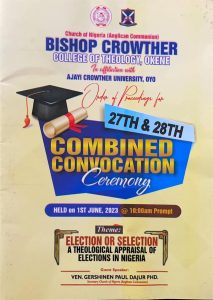 The illustration in this lecture is that there are five kinds of Christians in Nigeria:
1. The Benedictines: These are Christians who pray and prophesy without going into politics and election.
2. The Franciscans: These are Christians who are music composers, hymn, writers, poets, and singers who are excellent at singing the blessings or woes of Nigerian politics and elections without involving themselves.
3. The Dominicans: These are Christians who as philosophers, scholars, theologians, and academicians are majorly preoccupied with writing about Nigeria’s politics and elections.
4. The Jesuits: These are Christians who are layabouts and are found at relaxation joints and on social media baselessly, fruitlessly, and endlessly debating issues about Nigeria’s politics and election.
5. The Parish Priest: These are Christians who understood their call as transformers and are actively engaged in seeing how Nigeria can become better through their participation in politics and elections. These are the categories of Nigeria’s nationalists for fought for the independence of this nation in 1960. This category does not see politics and election as dirty; therefore, they have rolled off their sleeves and are down in the “basement,” “underground,” and “grassroots,” working to change things for the betterment of the nation. The Parish Priest restored light and that is a better and more challenging narrative to us who are called by God to shine as the light. Jesus said, “let your light so shine before men, that they may see your good works and glorify your Father in heaven” (Matt. 5:16). In what ways will Christians restore light in Nigeria’s politics and elections and Nigeria as a nation? The call for full participation in politics and elections must be undertaken based on the space allowed to the Christian clergy and laity. In the light of the experience of the 2023 elections, Dajur (2023) called for “proper orientation and schooling on the level of their political participation and involvement while maintaining their office as clerics of religions” (p. 35).
Conclusion
This presentation cannot end without emphasizing the need for all and sundry to get involved in Nigeria’s politics and election processes by exercising their rights to vote for good and credible leaders and having the courage to act in removing bad and corrupt leaders. Also, Nigerians must seek proper education on politics and election matters and respect the rights of others in politics and elections, thereby shunning and condemning violence and encouraging those who are aggrieved to seek redress through lawful means in the courts. Do not forget, there will be another election in four years’ time; so, do not go to sleep, instead, keep being educated and educating others about politics, election, leadership, nation-building, patriotism, etc. Above all, while you act, remember it is God who enables you to do what you do. Consequently, your humanity must not avoid humility; tilting towards humanity without humility leads to “practical humanism” and tilting towards humility without humanity leads to “pious irresponsibility” (John Stott, p. 128 & Rick Warren, pp. 58-59). Let us not get caught up in the web of waiting for God to act while He is waiting to work through us. (Warren, p.60). Every orthodoxy requires an appropriate orthopraxis. I consider it apt to conclude this lecture in the violent manner in which the Roman Catholic Mass ends based on the Latin rite. Ite missa est in polite English means “now you are dismissed” but in a blunt way means “‘get out!.’” And Stott said “out into the world which God made, and God-like beings inhabit, the world into which Christ came, which he now sends us. For that is where we belong. The world is the arena in which we are to live and love, witness and serve, suffer and die for Christ.” (p.26). I pray that all of us will together with one heart, mind, and one voice respond in clear words saying “Deo gratias” meaning “thanks be to God.”
So, to you all, “get out!”
The illustration in this lecture is that there are five kinds of Christians in Nigeria:
1. The Benedictines: These are Christians who pray and prophesy without going into politics and election.
2. The Franciscans: These are Christians who are music composers, hymn, writers, poets, and singers who are excellent at singing the blessings or woes of Nigerian politics and elections without involving themselves.
3. The Dominicans: These are Christians who as philosophers, scholars, theologians, and academicians are majorly preoccupied with writing about Nigeria’s politics and elections.
4. The Jesuits: These are Christians who are layabouts and are found at relaxation joints and on social media baselessly, fruitlessly, and endlessly debating issues about Nigeria’s politics and election.
5. The Parish Priest: These are Christians who understood their call as transformers and are actively engaged in seeing how Nigeria can become better through their participation in politics and elections. These are the categories of Nigeria’s nationalists for fought for the independence of this nation in 1960. This category does not see politics and election as dirty; therefore, they have rolled off their sleeves and are down in the “basement,” “underground,” and “grassroots,” working to change things for the betterment of the nation. The Parish Priest restored light and that is a better and more challenging narrative to us who are called by God to shine as the light. Jesus said, “let your light so shine before men, that they may see your good works and glorify your Father in heaven” (Matt. 5:16). In what ways will Christians restore light in Nigeria’s politics and elections and Nigeria as a nation? The call for full participation in politics and elections must be undertaken based on the space allowed to the Christian clergy and laity. In the light of the experience of the 2023 elections, Dajur (2023) called for “proper orientation and schooling on the level of their political participation and involvement while maintaining their office as clerics of religions” (p. 35).
Conclusion
This presentation cannot end without emphasizing the need for all and sundry to get involved in Nigeria’s politics and election processes by exercising their rights to vote for good and credible leaders and having the courage to act in removing bad and corrupt leaders. Also, Nigerians must seek proper education on politics and election matters and respect the rights of others in politics and elections, thereby shunning and condemning violence and encouraging those who are aggrieved to seek redress through lawful means in the courts. Do not forget, there will be another election in four years’ time; so, do not go to sleep, instead, keep being educated and educating others about politics, election, leadership, nation-building, patriotism, etc. Above all, while you act, remember it is God who enables you to do what you do. Consequently, your humanity must not avoid humility; tilting towards humanity without humility leads to “practical humanism” and tilting towards humility without humanity leads to “pious irresponsibility” (John Stott, p. 128 & Rick Warren, pp. 58-59). Let us not get caught up in the web of waiting for God to act while He is waiting to work through us. (Warren, p.60). Every orthodoxy requires an appropriate orthopraxis. I consider it apt to conclude this lecture in the violent manner in which the Roman Catholic Mass ends based on the Latin rite. Ite missa est in polite English means “now you are dismissed” but in a blunt way means “‘get out!.’” And Stott said “out into the world which God made, and God-like beings inhabit, the world into which Christ came, which he now sends us. For that is where we belong. The world is the arena in which we are to live and love, witness and serve, suffer and die for Christ.” (p.26). I pray that all of us will together with one heart, mind, and one voice respond in clear words saying “Deo gratias” meaning “thanks be to God.”
So, to you all, “get out!”
